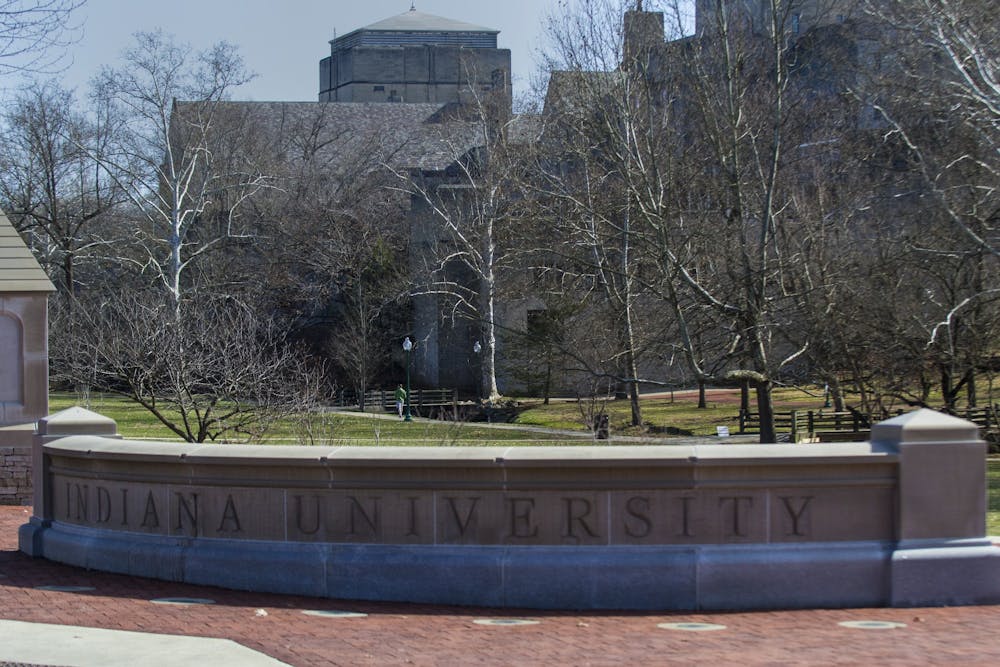IU was built on stolen land. Land taken from Myaamiki, Lënape, Bodwéwadmik and Saawanwa peoples, whose Anglicized names are Miami, Delaware, Potawatomi and Shawnee. There is no official statement from the university that recognizes this and provides a framework to take action.
Since their first contacts with Indigenous people, Europeans have murdered, raped and pillaged Native American tribes and land. The birth of the American nation only exacerbated this process. Time and time again, the United States broke treaties, started wars and violently displaced the people who called this continent home long before white settlers arrived.
Yet U.S. history books teach us the noble Europeans, exploring new lands to establish colonies with religious freedom and freedom of speech, had no part in the killing of millions of Native people. They just inadvertently brought diseases with them. While disease played a role, this telling of history conceals the active role whites played in the obliteration of Indigenous people.
The U.S. has systematically erased Indigenous people and culture through war, the destruction of their food supply, land theft with coercive treaties, boarding schools where any embrace of tribal culture was strictly punished, forced sterilization, targeted sexual assaults and attacks from social workers and adoption agencies, said Liza Black, an IU history professor.
Despite blatant and continuous persecution against Natives in our settler-colonial, white supremacist society, we glorify the colonizers. We praise the individuals who sparked mass genocide because it is easier to paint them in a heroic light than accept the weight of their transgressions.
Historian and Red Nation founder Nick Estes conceptualizes this in his book “Our History is The Future.”
“Settler narratives use a linear conception of time to distance themselves from the horrific crimes committed against Indigenous peoples and the land,” he wrote.
It’s an incredibly difficult pill to swallow. The U.S. — renowned for its guarantee of liberty, freedom and the right to pursue happiness — intentionally tried to extinguish Natives in order to exclusively garner these protections for a single, white race and extract value from stolen land and Indigenous bodies.
President Donald Trump’s proclamation on Columbus Day this year is the latest attempt to rationalize colonizer behavior. In his remarks, Trump argues that, as a country, we cannot “consent to such a bleak view of our history.”
The truth is too harsh. The genocide of Indigenous people too much to bear. So, policymakers try to erase it.
To accomplish this end, Trump created the 1776 commission to actively promote disinformation about the founding of our country. The commission serves as a counter measure to the New York Times’ 1619 Project, which attempts to show how our country was founded on slavery and racism and how that legacy affects us today. Trump’s patriotic propaganda machine builds on his efforts to cripple anti-racist measures in federal workplaces, as he already banned the teaching of Critical Race Theory.
It’s indisputable though that the country’s unacknowledged, racist and genocidal past continues to this day through material discrimination against Indigenous peoples.
Twenty-two percent of our country’s more than five million Native Americans live on tribal land, and on these reservations, there are 90,000 unhoused Native families. Anywhere from 40% to 80% of people are unemployed. Life expectancy is five and a half years shorter than the average American. And in the current pandemic, Indigenous people are hospitalized for COVID-19 at a rate more than five times higher than white Americans.
To begin addressing these socioeconomic disparities and centuries of purposeful political contempt, non-Native people need to start listening to the voices of Indigenous people.
“Native people are constantly being told who they are, who they were and how they should live,” Black said. It’s time they are “given the authority to speak for themselves.”
Modern world history centers around Indigenous people, as Estes wrote in his book. We cannot continue to treat the Indigenous community as members of the periphery. It’s time to acknowledge Native struggle, acknowledge settler-colonial mistakes, build solidarities between oppressed groups and actively create a society centered on inclusion, anti-imperialism, respect for sovereignty, love of nature and sufficient restitution for past wrongs.
JP Brenner (he/him) is a senior studying political science and geography. He loves spending time outdoors, away from his phone and is an avid reader.






